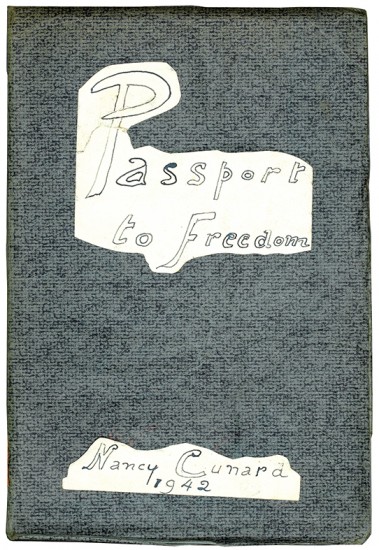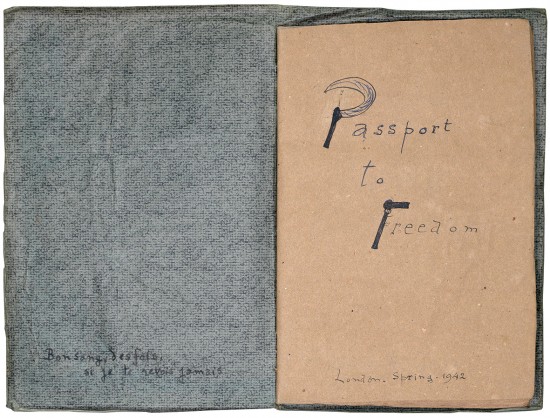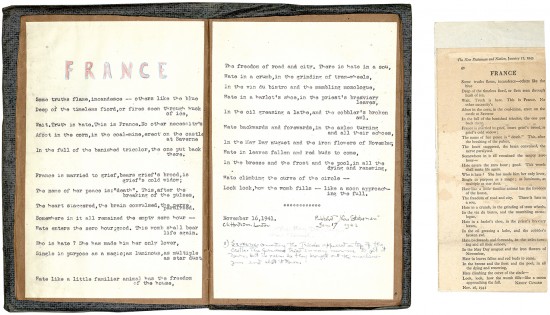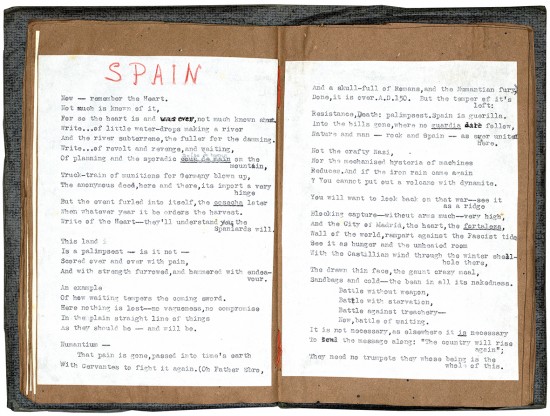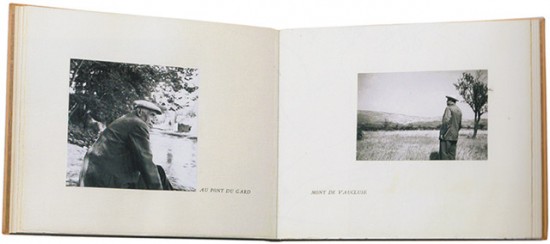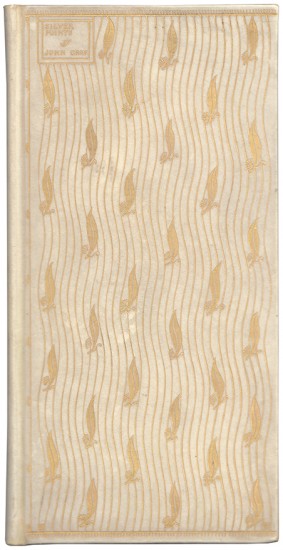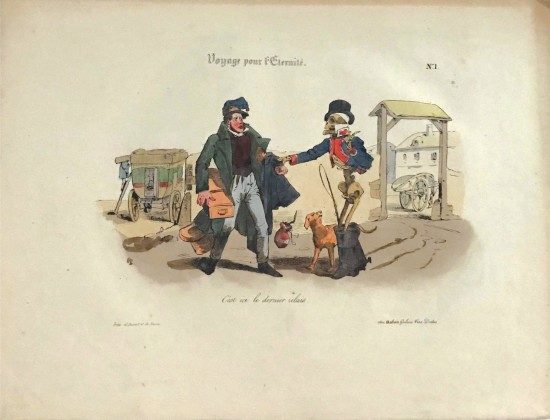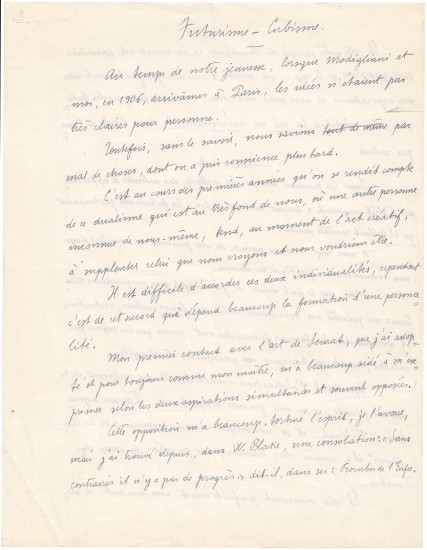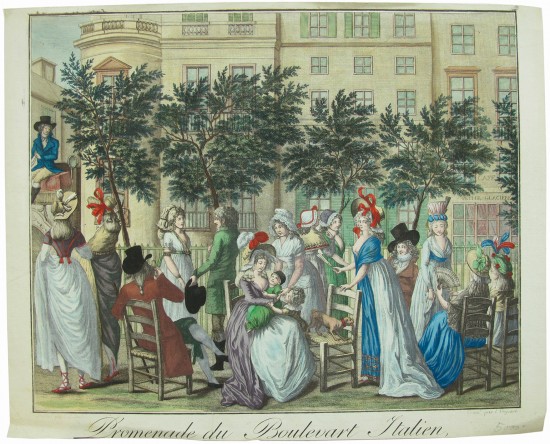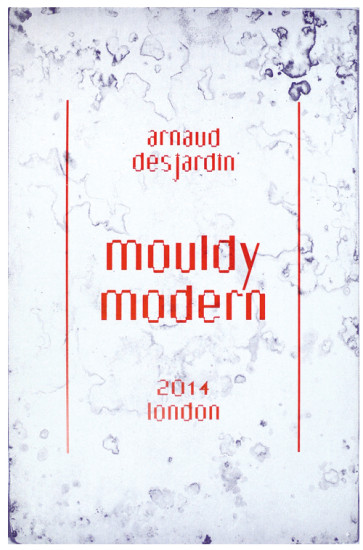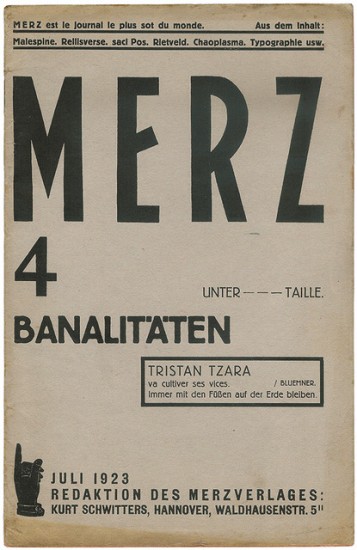Passport to Freedom
Cunard, Nancy (& John Heartfield)
London. 1941–1943
Sold
Nancy Cunard's original maquette for her unpublished 'Passport to Freedom'.
Nancy Clara Cunard (1896 - 1965), the heiress, philanthropist, muse, poet, political activist and socialite was the instigator and sponsor of a number of important, not to say ground-breaking, publications. Cunard's early association with 'The Coterie' group during the First World War, her establishment of the 'Hours Press' (which published many notable works including Samuel Beckett's 'Whoroscope') in the 1920s and her political activism in the 1930s and 1940s saw her involved - as actor, muse and patron - with the principal movements of literary and artistic Modernism. Cunard's political activity, as much a reflection of her unorthodox outlook as her philanthropy, saw her produce several of the most important overtly political works of the early 20th century: 'Negro', her anthology recording the achievements, sufferings, injustices and aspirations of the 'Negro peoples' (her words) and 'Salvo for Russia', the portfolio of poems and prints issued - as 'Solidarité' and 'Fraternité' were for the Spanish government during the Spanish Civil War - in support of the women and children of Soviet Russia in 1942, as well as tireless collecting for charity, journalism concerning the Spanish Cicil War (she predicted accurately the Second World War) and translation work for the French Resistance.
It is within these political terms that 'Passport to Freedom' is situated, an anti-fascist, anti-war, pro-human publication, with poems by Cunard and proposed photomontage illustration by the subversive refugee from Nazism, John Heartfield (the pseudonym of Helmut Herzfeld), who had arrived in London in 1939. Given Heartfield's photomontage work, with its highly subversive tendencies and Socialist leanings, and Cunard's own Left-tending poetry, it is probable that 'Passport to Freedom' would have gone further than even 'Negro' or 'Salvo for Russia' in intent. That this maquette, together with some related correspondence, is all that remains of Cunard's evidently noble aim, is a tragedy, however, the political climate, Cunard's exhaustion from her tireless campaigning, collecting and publishing, as well as Heartfield's own personal and political difficulties (he was interned on arrival in England as an enemy alien, his health suffering consequently and his brother Wieland was refused an entry permit) explain, at least to an extent, why 'Passport to Freedom' proceeded so far, but no further, down the path of publication.
Full details and collation available on request.
Nancy Clara Cunard (1896 - 1965), the heiress, philanthropist, muse, poet, political activist and socialite was the instigator and sponsor of a number of important, not to say ground-breaking, publications. Cunard's early association with 'The Coterie' group during the First World War, her establishment of the 'Hours Press' (which published many notable works including Samuel Beckett's 'Whoroscope') in the 1920s and her political activism in the 1930s and 1940s saw her involved - as actor, muse and patron - with the principal movements of literary and artistic Modernism. Cunard's political activity, as much a reflection of her unorthodox outlook as her philanthropy, saw her produce several of the most important overtly political works of the early 20th century: 'Negro', her anthology recording the achievements, sufferings, injustices and aspirations of the 'Negro peoples' (her words) and 'Salvo for Russia', the portfolio of poems and prints issued - as 'Solidarité' and 'Fraternité' were for the Spanish government during the Spanish Civil War - in support of the women and children of Soviet Russia in 1942, as well as tireless collecting for charity, journalism concerning the Spanish Cicil War (she predicted accurately the Second World War) and translation work for the French Resistance.
It is within these political terms that 'Passport to Freedom' is situated, an anti-fascist, anti-war, pro-human publication, with poems by Cunard and proposed photomontage illustration by the subversive refugee from Nazism, John Heartfield (the pseudonym of Helmut Herzfeld), who had arrived in London in 1939. Given Heartfield's photomontage work, with its highly subversive tendencies and Socialist leanings, and Cunard's own Left-tending poetry, it is probable that 'Passport to Freedom' would have gone further than even 'Negro' or 'Salvo for Russia' in intent. That this maquette, together with some related correspondence, is all that remains of Cunard's evidently noble aim, is a tragedy, however, the political climate, Cunard's exhaustion from her tireless campaigning, collecting and publishing, as well as Heartfield's own personal and political difficulties (he was interned on arrival in England as an enemy alien, his health suffering consequently and his brother Wieland was refused an entry permit) explain, at least to an extent, why 'Passport to Freedom' proceeded so far, but no further, down the path of publication.
Full details and collation available on request.
[16 unnumbered leaves]. 8vo. (255 x 172 mm). Manuscript and printed text (see below) on or pasted to leaves of thick brown paper (see detailed description), the manuscript text in Cunard's hand in ink or pencil throughout, the printed text features Cunard's poems 'FRANCE', 'RUSSIA - THE U.S.S.R.', 'ITALY', 'SPAIN', 'GERMANY' and with a number of additional inserted sheets with the poem 'Soldier poor Soldier' (presumably the contribution for England) and so on (see complete description for additional details). Stitched as issued in original blue / grey patterned paper wrappers with two irregular découpé sections of white paper pasted to front cover, each with with manuscript text in black by Cunard, later black morocco-backed marbled paper-covered board box with title gilt to spine.
#44731
